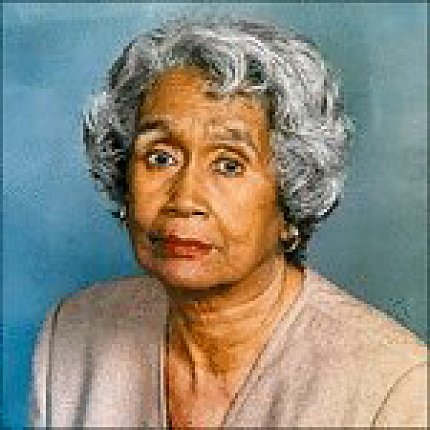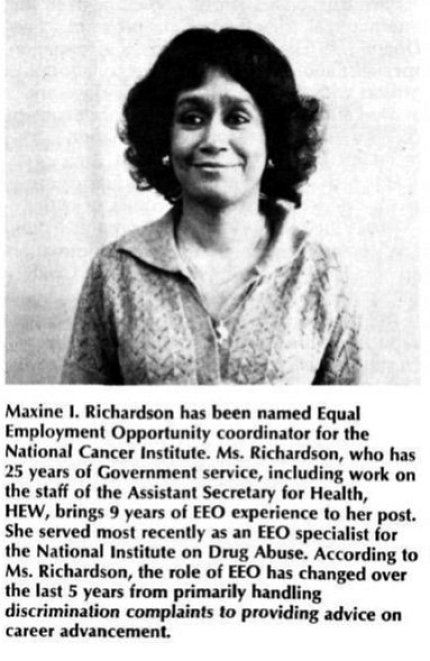Former NCI EEO Director Richardson Is Mourned

Maxine Richardson, NCI EEO director from 1980 to 1996, died on Oct. 19, in Raleigh, N.C., where she had moved in May. She was 85 years old.
Richardson managed an active and innovative institute EEO program that informed minorities and women of the many NIH opportunities in need of their talent. She was the first institute EEO director to create a Federal Equal Opportunity Recruitment Plan based on NCI-specific occupations in need of diversification.
She sent NCI human resources, scientific and EEO staff to the first federal Hispanic recruitment conference, held in Puerto Rico during the Carter administration, to recruit nurses and nursing students for intramural and extramural opportunities.
Richardson’s office adopted an initiative created in the National Heart, Lung and Blood Institute EEO office to recycle medical textbooks and publications, previously discarded by NCI, to the historically Black colleges and universities and a community college on the Rosebud Indian Reservation in South Dakota. Her office developed a K-12 educational outreach program, Invitation to Careers in Research, that extended age-appropriate opportunities for students to interact with NCI researchers. She appreciated the commitment of the NCI directors to the EEO Program.

Born in Waukegan, Ill., Richardson worked at the Great Lakes Naval Base prior to relocating to Washington, D.C. Before coming to NCI, she was an EEO specialist for the National Institute on Drug Abuse at Parklawn. In 1985, Richardson received the NIH Merit Award. She understood that she had to cultivate the support of senior management to be a successful change agent.
Former NCI employee Shirl Brinson recalled asking Richardson to accompany her to a meeting with NCI management officials where she perceived there would be a power imbalance that would make her uncomfortable.
“Maxine demonstrated a highly effective professional demeanor, which had a positive outcome in my case,” Brinson recalled.
Kay Johnson, diversity and inclusion strategist in NIH’s Office of Equity, Diversity and Inclusion, commented, “I am really saddened to hear of Maxine’s passing. She was my mentor, sponsor, supervisor and friend. I will be forever grateful for her selfless commitment to mentoring the next generation in civil rights and EEO.”
Richardson is survived by her daughter, Carolyn Kennedy Calhoun of Clayton, N.C., and son, Logan Kennedy of Weehawken, N.J.
Expressions of sympathy may take the form of donations to the American Cancer Society in remembrance of Richardson.
